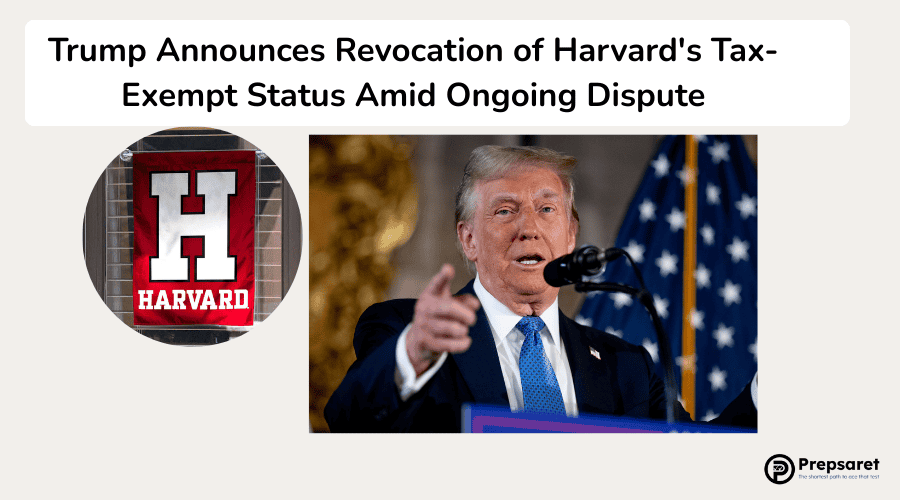Highlights:
- President Trump has announced plans to revoke Harvard University’s tax-exempt status.
- The move follows an escalating feud between the administration and elite universities over DEI programs.
- Trump argues that Harvard is abusing its tax-exempt privilege, while Harvard defends the designation as legally grounded and vital to its mission.
- The action may trigger further legal battles, especially following a lawsuit over federal funding freezes.
- IRS staff cuts and broader government downsizing are affecting oversight capacity amid this push.
WASHINGTON, D.C. — May 2, 2025 — President Donald Trump on Friday declared his intention to revoke Harvard University’s tax-exempt status, intensifying his administration’s ongoing confrontation with elite institutions over diversity policies and governance.
“We are going to be taking away Harvard’s Tax Exempt Status. It’s what they deserve!” Trump posted on his social media platform, Truth Social, without outlining a specific timeline. The move aligns with earlier threats to target universities for what he deems misuse of tax privileges.
Broader Policy Campaign Against Universities
The announcement follows a string of actions against Harvard, including a recent freeze on $2.2 billion in federal grants and $60 million in contracts.
The administration conditioned the release of those funds on the university dismantling its diversity, equity, and inclusion (DEI) initiatives, revising hiring policies, and changing institutional leadership. Harvard refused, and subsequently filed a lawsuit, calling the move unlawful.
In April, Trump had already hinted that Harvard, Columbia, and Princeton were among institutions allegedly “abusing” their nonprofit status. He told reporters, “Tax-exempt status, I mean, that’s a privilege. And it’s been abused. By a lot more than Harvard, too.”
Legal and Institutional Pushback
Harvard has defended its 501(c)(3) designation, which exempts it from federal income tax and allows donors to claim deductions. A university spokesperson stated, “The government has long exempted universities from taxes in order to support their educational mission.”
The spokesperson emphasized that the exemption allows Harvard to invest more directly in student scholarships, medical research, and innovation.
The revocation of such status, if enforced, would likely spur another round of litigation. Legal experts note that there must be a demonstrated violation of IRS regulations to justify such a move.
IRS and Government Restructuring
This crackdown comes amid internal changes at the IRS itself. Nearly 20,000 agency employees have accepted a buyout package offered by the Trump administration, part of a wider initiative to reduce the federal workforce. Concurrently, the administration has proposed ending the IRS’s free tax filing program.
As Harvard holds the largest university endowment in the U.S. at $52.3 billion, any shift in its tax status would set a precedent with far-reaching consequences for American higher education.
Also in the News

